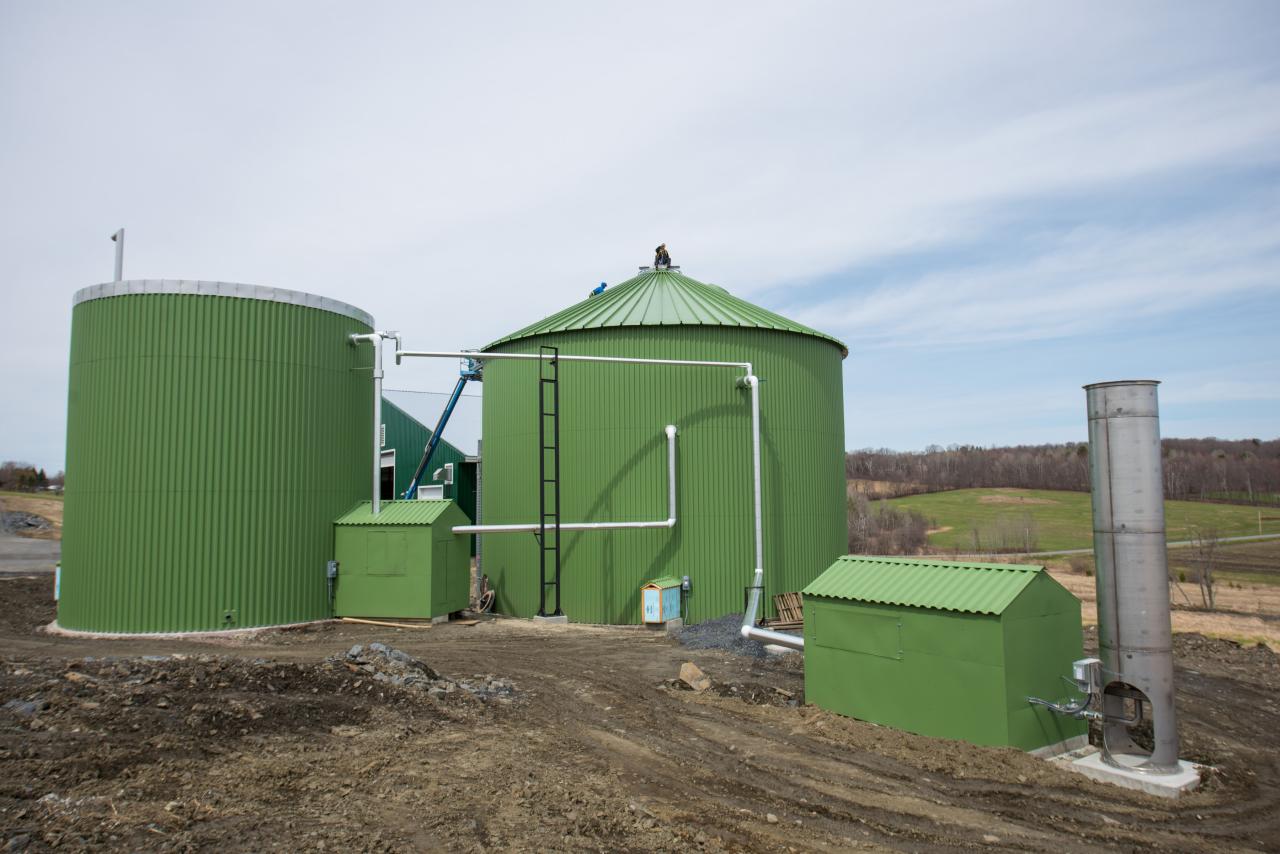 With 100% of their degrees earned through applied, hand-on education, Vermont Tech students learn by doing. This experiential learning is central to the school’s renewable energy and climate change initiatives, allowing students to work hands-on with innovative technologies to save on energy and costs and reduce carbon emissions. These include
With 100% of their degrees earned through applied, hand-on education, Vermont Tech students learn by doing. This experiential learning is central to the school’s renewable energy and climate change initiatives, allowing students to work hands-on with innovative technologies to save on energy and costs and reduce carbon emissions. These include
- A 375W anaerobic biodigester on the Randolph campus powered by waste materials from the school and surrounding farms and businesses. Students pursue certifications as biodigester technicians while working with the on-campus facility and then have the ability to model that technology around the state.
- The Diversified Agriculture program teaches ag students the critical connection between soil maintenance and health, carbon sequestration, and water quality. Students work with faculty to return effluent from the biodigester to fields as fertilizer with a much lower phosphorous level. The resulting increased crop production captures more nutrients in the soil, decreasing the chance of runoff and pollution of our state’s waterways.
- The installation of a 500kW solar field has offered the potential for the Randolph Center campus to be nearly net zero. The array serves as a living laboratory to train the next generation of engineering technology and renewable energy professionals. Data collected on-site will become classroom content for real-life case studies of production and expectations of design.
Fully realized, the vision for this campus is an almost entirely closed loop," says Former VTC President Dan Smith, "where we can produce our food, generate our energy, recycle our waste, and manage our nutrients and carbon in a way that is a model for Vermont communities and is tied to teaching and learning at every point.
